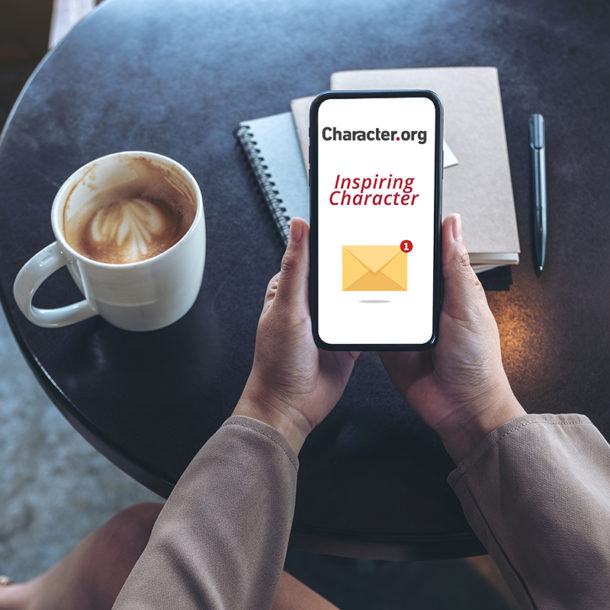By Dr. Arthur Schwartz
For the past three years, with a grant from The School for Ethical Education, Character.org has invited students worldwide to write a “Law of Life” essay. Our writing prompt encourages middle school and high school students “to reflect and write about a core value that means the most to you – and why.”
This past week, I read one essay that was unlike any other essay I’ve ever read. I have no idea what grade the student is in or whether the student lives in Boston or Brazil. All I know is that I can’t stop thinking about this essay because of how brutally honest the essayist is about one aspect of his or her character. The student writes:
Honesty is hard. Difficult. I feel a little silly for saying this,
but I cannot go a day without lying. Whether I lie to my friend
about a small little thought to make it sound better, or I have a
problem and I got to make the lie sound believable. I still lie.
The student goes on to write, “one day I know my lies are gonna catch up to me. I dread the day when it happens, I do.”
But it was the essay’s last lines that punched my gut. Ever the optimist, I thought the final paragraph would be where the student tells the reader that he or she is going to try to stop telling lies all the time. But here’s how the essay ends:
I am not the kind of person I should be. But if you want my honesty
in this? I am fine with being like this. There is my honesty…
I’m a lying machine. It is bad.
Is the essay a call for help? If so, how should we make sense of the line “I am fine with being like this”? I have been gnawing at these questions for days, and here’s what I’ve come to understand:
Lying during the teen years is pervasive. Researchers tell us that children begin to lie at around age 3 when they realize others around them cannot read their minds. Around middle school, kids often lie to gain acceptance from peers or to exercise control over a situation. Yet the American Academy of Child and Adolescent Psychiatry cautions that when tweens and teens are repeatedly lying, families and educators need to resist thinking that “everyone lies, so it’s no big deal.” Teens who consistently lie often do need our help and support.
Reflective writing is a powerful tool. For years, James Pennebaker and colleagues have been researching the mental health benefits of reflective writing. Okay, perhaps not for all kids. Or for all issues. But for many of us reflecting and putting down in words something we’ve been thinking about (e.g., such as a recent experience or what we’re feeling) helps us to reframe and address the situation or issue in a positive way.
Self-awareness is an important first step. Brene Brown hit the mark when she wrote, “owning our story can be hard but not nearly as difficult as spending our lives running from it.” My hope is that the student who wrote about lying will begin to understand that he is not a machine. No machine will ever have the level of self-awareness revealed in his or her essay. We can change our mindsets.
One final thought: We must resist the notion that the young person who wrote the essay has “bad character.” The truth is that none of us are perfect. The student may be exceptionally kind and empathetic to strangers or volunteer at an animal shelter on a regular basis. We are all works in progress. What’s most important, especially when focusing on our character growth, is for all of us to figure out how to look at ourselves in the mirror with integrity and humility.
*******************
Note: Interested in learning more about why kids lie? Check out this great video by Dr. Victoria Talwar.
Stay Connected To Character
Would you like to receive Arthur’s weekly blog post?







An important topic to be sure. Civil society is challenged when everyone fears to tell the truth. We fear for our reputation among our peers and thus we lie. The good doctor does not want to label this a character flaw and notes other character strengths might exist, but the flaw remains. If society can’t label lying a character flaw, we will simply get more of it. Valuing one’s integrity (being honest with one’s belief, acting consistent with one’s beliefs) is one anecdote to lying and it requires the sister character trait of moral courage.